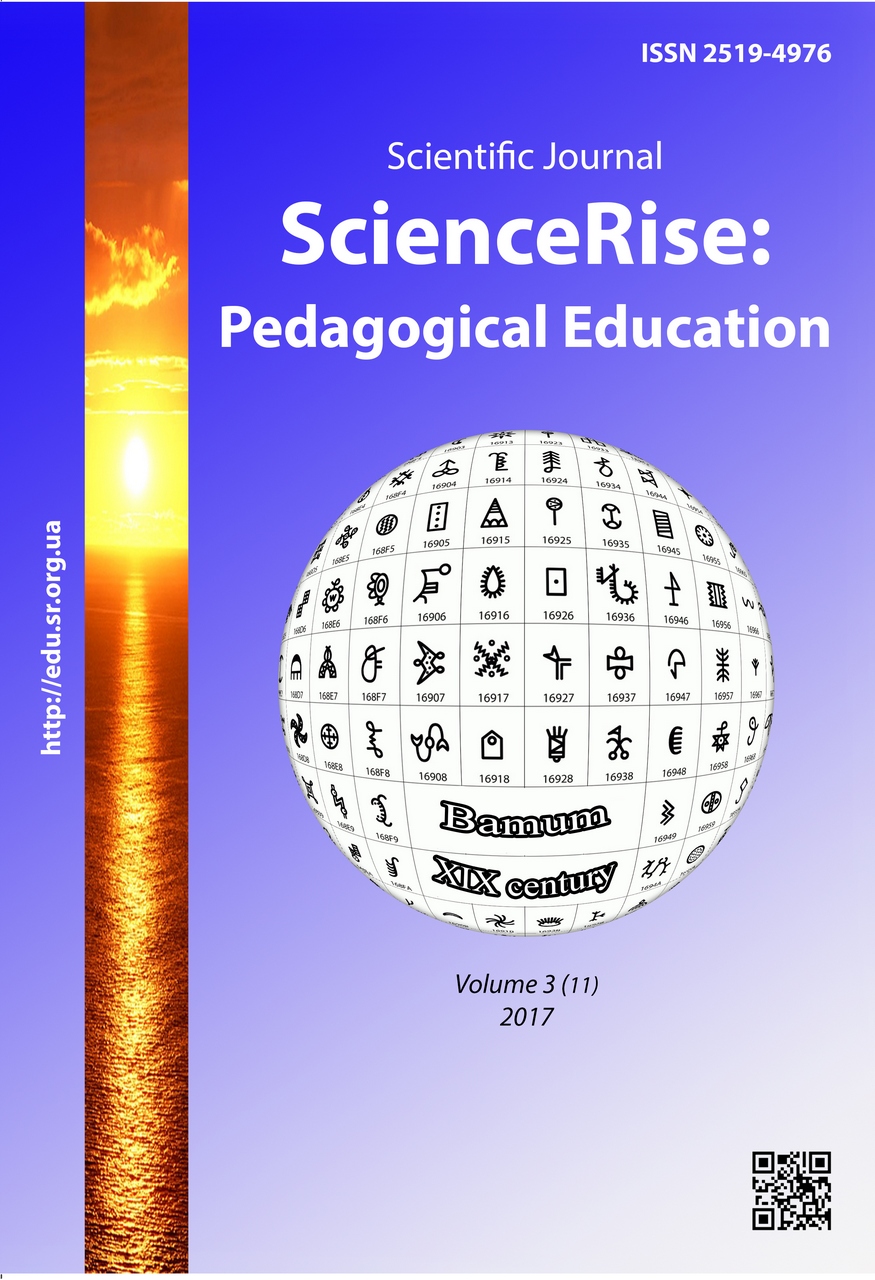Intellectual skills as a factor of forming professional mobility of future qualified specialists in machinery construction
DOI:
https://doi.org/10.15587/2519-4984.2017.97258Keywords:
mobility, professional mobility, person, qualified worker, machinery construction, intellectual skillsAbstract
In the article was determined the fact that success in professional activity, attainment of professional tops depends on internal and external preconditions. The internal preconditions are highly-developed general and special skills, emotional-volitional features, formation of professionally important qualities and education of human. The external preconditions are the influence of socio-economic and professional environment. Inclusion of future qualified worker in labor activity generates formation and manifestation of such personal quality as professional mobility that is necessary under conditions of the modern labor market.
The essence of professional mobility in pedagogical theory and practice was grounded. It was proved, that professional mobility is an integrated personal quality, necessary for successful life activity under conditions of the modern labor market and provides readiness of qualified worker to the change of realized professional tasks, working place, ability to master new specialties fast.
It was determined, that intellectual skills favor the formation of professional mobility of future qualified worker of machinery construction. They are some kind of reference point that provides the application of methods of actions under concrete conditions of professional task. Moreover this application is not realized automatically, it provides certain intellectual actions, directed on the change of the state of object or its properties. Having been fixed in time, these actions are transformed into intellectual skills, manifested in changed conditions of labor activity, in which structure the main place is occupied by the subject action, directed on the labor object, labor instrument, model and so on
References
- Pedahohyka: bol'shaya sovremennaya entsyklopedyya (2005). Minsk: Sovremennoe slovo, 720.
- Horyunova, L. V. (2006). Professyonal'naya mobylnost spetsyalysta kak problema razvyvayushchehosya obrazovanyya v Rossyy. Rostov-on-Don, 427.
- Kozhemyakina, N. I. (2006). Sotsial'no-pedahohichni umovy formuvannya profesiynoyi mobilnosti maybutnikh menedzheriv-ahrariyiv. Izmail, 248.
- Vashchenko, A. M. (2006). Formuvannya profesiynoyi mobil'nosti maybutnikh ofitseriv u protsesi navchannya u vyshchykh viyskovykh navchal'nykh zakladakh. Odessa, 261.
- Sushentseva, L. L., Sulyma, T. S. (2016). Profesiyna mobilnist yak sociologichna katehoriya. Actual questions and problems of development of social sciences. Kielce: Holy Cross University, 82–85.
- Ivanchenko, Ye. A. (2005). Formuvannya profesiynoyi mobil'nosti maybutnikh ekonomistiv u protsesi navchannya u vyshchykh navchal'nykh zakladakh. Odessa, 181.
- Sushentseva, L. L.; Nychkalo, N. H. (Ed.) (2011). Formuvannya profesiynoyi mobilnosti maybutnikh kvalifikovanykh robitnykiv u profesiyno-tekhnichnykh navchalnykh zakladakh: teoriya i praktyka. Kryvyi Rih:Vydavnychyy dim, 438.
- Prima, R. M. (2009). Formuvannya profesiynoyi mobilnosti maybutnoho vchytelya pochatkovykh klasiv: teoriya i praktyka. Dnepropetrovsk: IMA-PRES, 368.
- Yakymanskaya, Y. S. (1979). Formyrovanye v uchashchykhsya yntellektualnykh umenyy y navykov v protsesse proyzvodstvennoho obuchenyya. Moscow: Vysshaya shkola, 208.
- Novatskyy, T.; Zhydeleva, M. A. (Ed.) (1979). Osnovy dydaktyky professyonal'noho obuchenyya. Moscow: Vysshaya shkola, 284.
- Batyshev, S. Ya. (1984). Proyzvodstvennaya pedahohyka. Moscow: Mashynostroenye, 672.
- Nychkalo, N. H., Zaychuk, V. O., Rozenberh, N. M. et. al.; Nychkalo, N. H. (Ed.) (1992). Pedahohichna knyha maystra vyrobnychoho navchannya. Kyiv: Vyshcha shkola, 334.
- Sushentseva, L. L. Profesiyna mobilnist yak suchasna pedahohichna problema. Naukova biblioteka Ukrayiny. Available at: http://www.info-library.com.ua/libs/stattya/192-profesijna-mobilnist-jak-suchasna
Downloads
Published
How to Cite
Issue
Section
License
Copyright (c) 2017 Liliia Sushentseva

This work is licensed under a Creative Commons Attribution 4.0 International License.
Our journal abides by the Creative Commons CC BY copyright rights and permissions for open access journals.
Authors, who are published in this journal, agree to the following conditions:
1. The authors reserve the right to authorship of the work and pass the first publication right of this work to the journal under the terms of a Creative Commons CC BY, which allows others to freely distribute the published research with the obligatory reference to the authors of the original work and the first publication of the work in this journal.
2. The authors have the right to conclude separate supplement agreements that relate to non-exclusive work distribution in the form in which it has been published by the journal (for example, to upload the work to the online storage of the journal or publish it as part of a monograph), provided that the reference to the first publication of the work in this journal is included.







